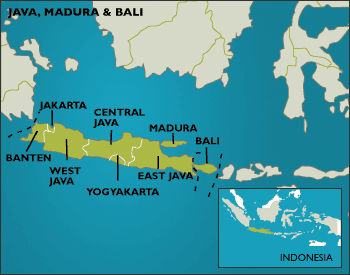Down to Earth No 51 November 2001
A decision to suspend the certification of teak plantations in Java has highlighted major problems with the Forest Stewardship Council (FSC) eco-labelling scheme in Indonesia.
In August, the FSC-accredited certifier, Smartwood - a programme of the US-based Rainforest Alliance - announced its decision to suspend the certificates of four of five plantations managed by PT Perhutani: Cepu, Kebonharjo and Kendal in Central Java and Madiun in East Java. In total, five teak and one pine plantation had been certified by Smartwood.

